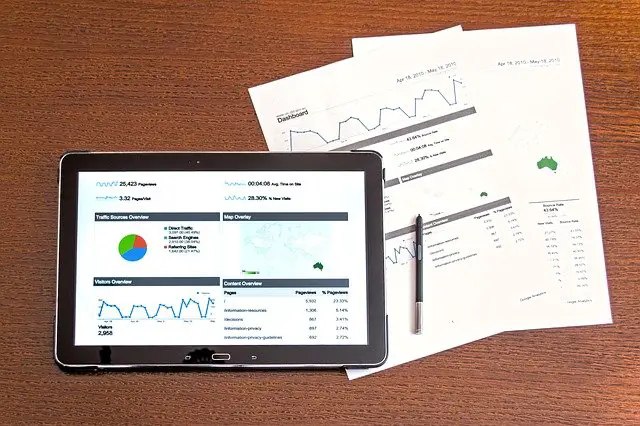Simply put, they are both great options. What you choose depends on how much flexibility you need, what platform you use, and how much money you have available to you. ETF prices fluctuate throughout the market day but tend to be cheaper than mutual funds to buy into and you can purchase fractional shares on certain platforms. Mutual fund pricing changes once a day, and may require a minimum investment in order to buy in but can be automated. Let’s get into the details.
What is an ETF?
An ETF is an exchange-traded fund. Exchange-traded indicates that the price of the fund changes throughout the market day. A fund is a collection of all types of investments, stocks, bonds, or commodities. So let’s say you want to invest in social media platforms. Rather than invest in Meta (formerly known as Facebook), Snapchat, Instagram, and Twitter individually, you can purchase the ETF SOCL (Global X Social Media).
Why are ETFs better than stocks?
While it is not that ETFs are better than stocks per se, it’s that it broadens your risk and decreases your expenses in general. So rather than investing $1000 in Meta, for example, you purchase $1000 work of SOCL. Meta makes up 8.5% of that ETF today. So $80.50 of your $1000 will be invested in Meta.
Let’s say the value of Meta was slashed in half one day. Then your $1000 of Meta stock would be worth $500. While if this happened when invested within the ETF, your $80.50 would be worth $40.25. Big difference, no?

In regards to expenses, ETFs have expense ratios within them so it costs to own them. Expense ratios are not a factor when investing in stocks individually. However, let’s say the platform you use charges $1 for each transaction (purchase or sell) you make. Instead of paying $4 to purchase shares of Meta, Snapchat, Instagram, and Twitter, you can pay $1 to purchase a share of SOCL that holds 45 different stocks.
READ MORE: 5 Essential ETFs to have in your portfolio
What is a mutual fund?
Mutual funds are a compilation of stocks, bonds, and other assets put together by a financial institution. These mutual funds usually have a set goal or requirements in order for a stock to be listed within that fund. The biggest difference between ETFs and mutual funds is that mutual funds are traded once a day so the price only changes once a day.
Advantages of an ETF
The benefits of an ETF are as follows:
- Lower buy-in. For example, the mutual fund for Vanguard’s Total Stock Market (VTSAX) has a minimum investment of $3,000. However, you can purchase a share of the ETF version (VTI) for about $221. If the platform you use allows you to purchase fractional shares of an ETF, you can purchase an ETF like VTI for even less.
- Lower expense ratios. In the example of VTSAX versus VTI, the difference in expense ratios is minimal (0.04% vs 0.03% respectively). However, in general, ETFs are known for having lower expense ratios which means it costs less to own.
- Diversification. In comparison to buying individual stocks, ETFs allow you to invest in any sector you want without giving yourself exposure to any one company. Instead, you have exposure to a bunch.
- They make the choices so you don’t have to. Rather than you picking the winners and losers of the stock market, you choose the ETF and let someone else make that decision. The holdings within your ETF will change as companies succeed and fail. No one company’s demise will destroy your portfolio.
- More control over stopping losses. If you are risk-averse and your investing platform allows it, you can set limit orders to sell if the price of the ETF falls below your comfort level. While this is not advised for a long-term investment strategy, it is an option you do not have with mutual funds.
READ MORE: How to Make the Best Use of Limit Orders
Disadvantages of an ETF
- Can’t be automated…in most cases. There are some platforms, like Stash*, that will allow you to set up automatic purchases of ETFs. This is because they allow for purchases of fractional shares. But for other platforms, you will have to go in every time you add funds to your account to make a purchase.
READ MORE: Investing with Stash – Great App for Beginner Investors
The Benefit of Investing Using Mutual Funds
You’ll note some similarities with the ETF benefits.
- Easily automated. You can set up automatic or periodic investments of a fund to occur weekly, biweekly, or monthly. So it takes one thing off your plate once you’ve made the decision. And you can change it whenever.
- Diversification. This allows you to invest in any sector without giving yourself exposure to any one stock.
- They make the choice so you don’t have to.
- Index mutual funds have lower expense ratios. Because they are more passively managed, they come at a lower cost than actively managed funds that aim to beat the market.
- Some funds don’t have a minimum investment. This means that depending on the platform, you can get started with just $1.

READ MORE: How to Create a Routine to Get Results You Want
READ MORE: What Are Index Funds?
Disadvantages of Mutual Funds
- May have a higher barrier of entry. As previously mentioned, some mutual funds have minimum investments. However, there are usually alternate options that are just as good. For example, instead of investing in the total stock market using VTSAX, you could purchase Schwab’s version SWTSX which has no minimum.
- Limit orders aren’t an option. At least not that I’ve seen. This is because mutual funds are traded after market hours, where limit orders don’t usually apply.
So which is right for you, ETFs or mutual funds?
That is up to you. Key differences might lie within which platform you are inclined to use and whether or not you want a set it and forget it approach. I personally make use of both.
Let me know which one you prefer or if there are points that you have considered that weren’t mentioned here.

